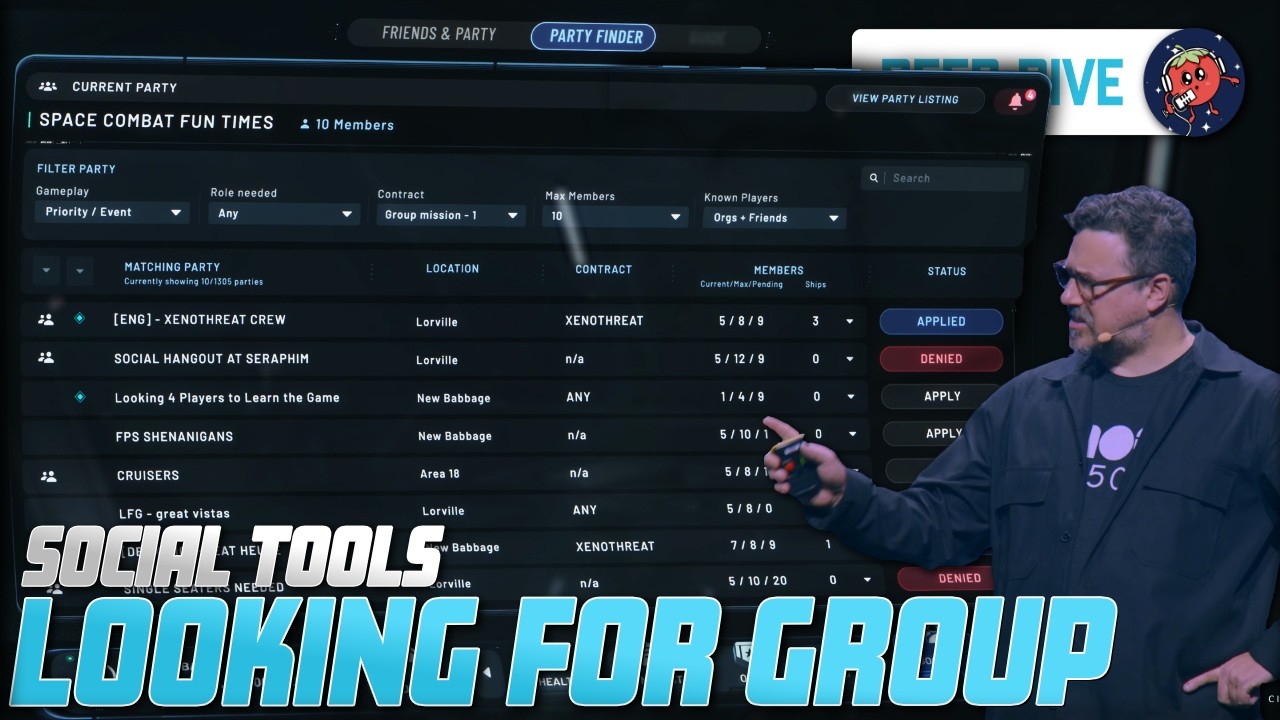Star Citizen is overhauling its social tools with a unified app integrating friends lists, voice chat, party management, blocklists, and a dynamic party finder to enhance multiplayer coordination and communication. Additionally, revamped systems for player-created missions, trusted guide beacons, and comprehensive organization management aim to foster deeper social interaction and a robust player-driven economy, marking a significant step toward a true MMO experience.
The video provides an in-depth overview of the planned social tools for Star Citizen, addressing the current shortcomings and the ambitious improvements underway. The existing social systems were originally designed for a much smaller player count and are now outdated, leading to a poor multiplayer experience. The developers are working on a comprehensive social app integrated into the MOI glass, aiming to unify friends lists, voice chat, party management, and blocklists with richer presence information and synchronization across the game, website, and launcher. Features such as notes on friends, favorites, status indicators, and a blocklist to mute or block toxic players are being introduced to improve social interactions and player management.
Party systems are also receiving significant upgrades to support larger groups, with improved UI, search functionality, and detailed situational awareness like ship and seat assignments. Permissions for inviting players will be controlled to prevent spam, and new group features will enhance coordination for challenging gameplay. Streamer-friendly features will obscure sensitive information to protect privacy. Additionally, the introduction of a dynamic party finder will enable player-powered matchmaking, allowing players to advertise groups with specific roles and activities, making it easier to find like-minded players for various gameplay styles without heavy communication requirements.
Communication tools are being enhanced with customizable chat windows, chat tabs, and useful slash commands for different chat channels. The system will support hyperlinks for contracts, star maps, items, and player profiles, facilitating easier information sharing. Localized chat improvements are hinted at, although some technical limitations related to the game’s star system-based communication restrictions remain uncertain. Voice communication improvements focus on reliability and integrating VOIP and FOIP (face tracking), but these are considered secondary to core chat and party system enhancements.
A major highlight is the revamped beacon system, which enables player-created missions and contracts, such as hauling or repair requests. This system will be expanded with guide beacons to connect new players with experienced guides, incentivized by rewards and a proficiency rating system to build trust. Beacon responders will have a trust rating visible to others, helping mitigate risks of being ganked or scammed. The developers aim to make the beacon system robust against exploitation, integrating it tightly with the evolving player-driven economy and social gameplay.
Finally, player organizations (orgs) will see a comprehensive overhaul with in-game tools for managing members, ranks, announcements, events, and recruitment. Players can join multiple orgs and choose which one to represent, gaining loyalty and alignment benefits tied to larger guilds that offer gameplay perks. Alliances and rivalries between orgs will be formalized with mutual agreements, affecting in-game hostility indicators and communications. The system aims to foster deeper social dynamics and meaningful progression within the org ecosystem. While these features are promising, they are planned for the future and are not expected to arrive soon, but they represent a significant step toward a true MMO social experience in Star Citizen.
